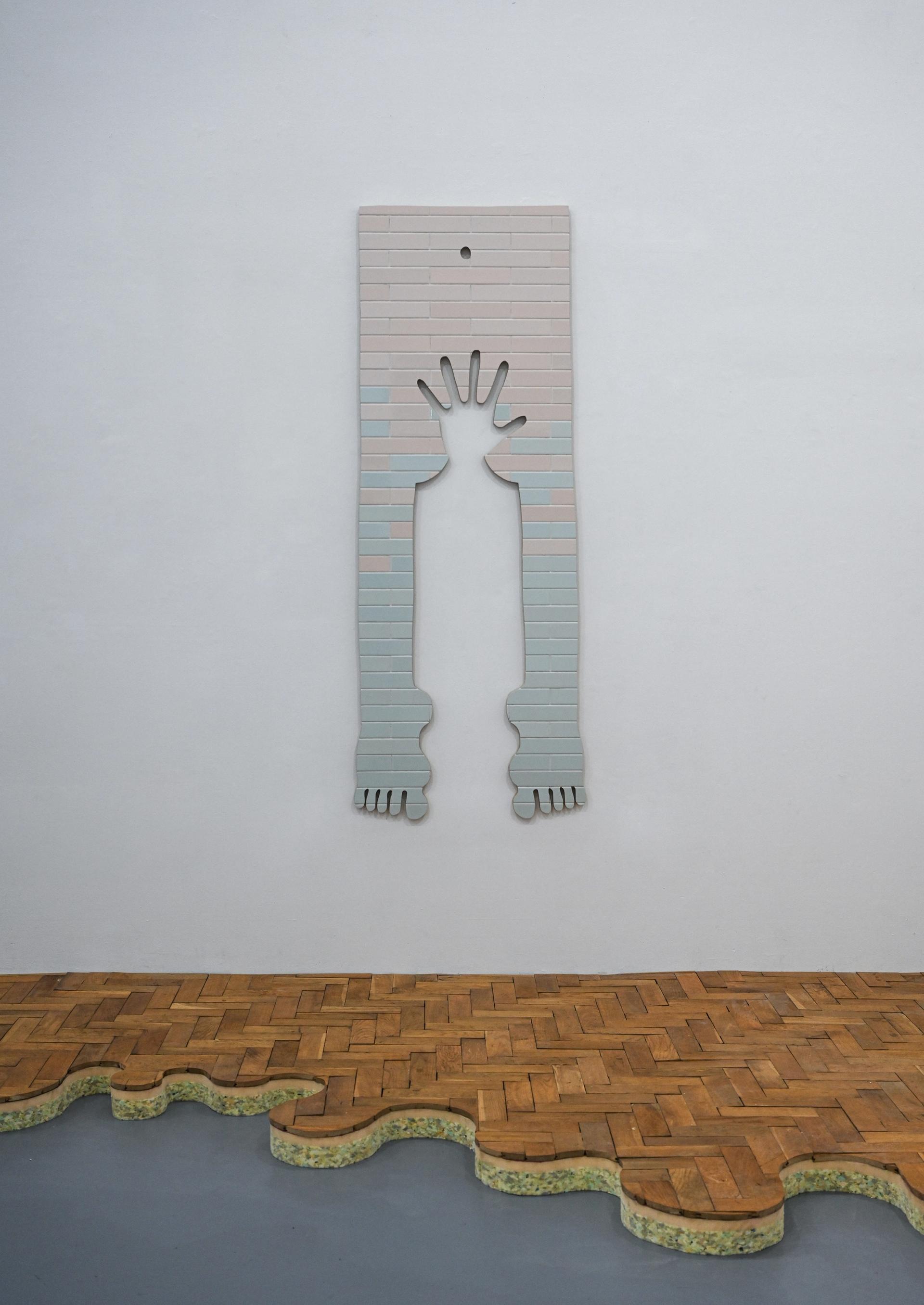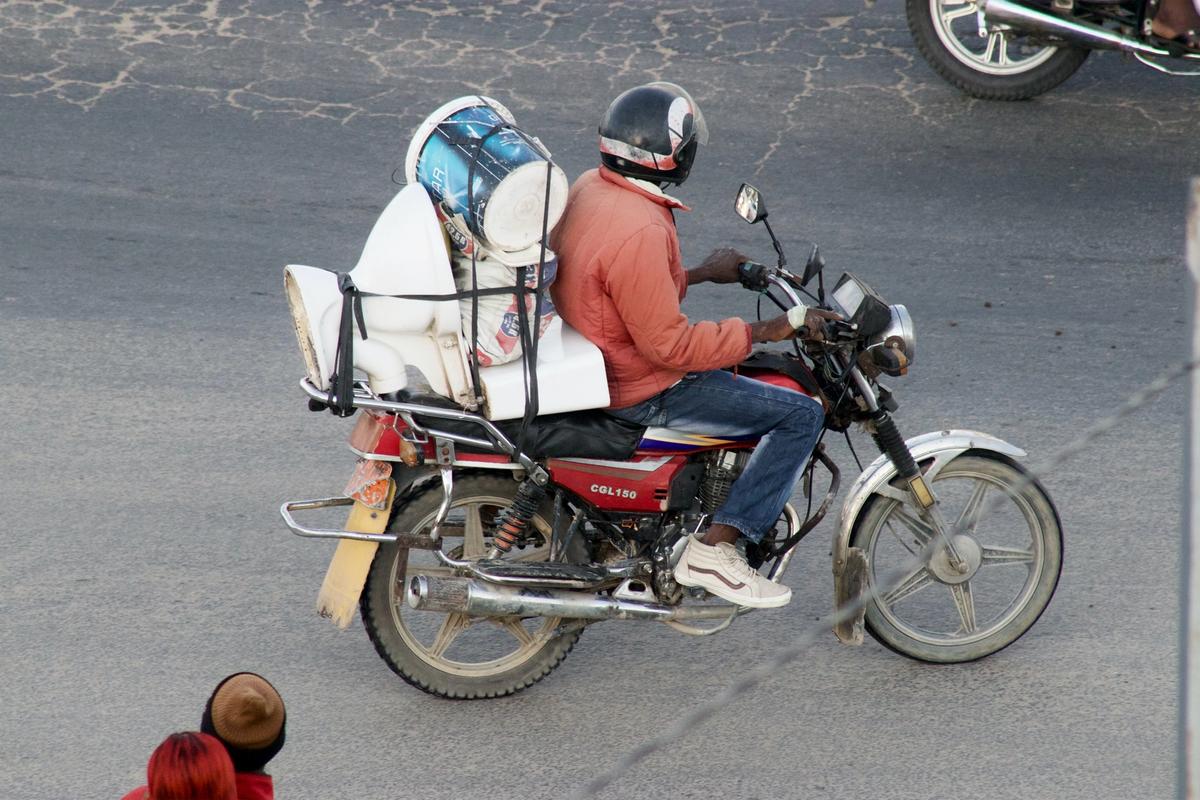Boy.Brother.Friend: Before Anyone Else
Until 21 November, 5 Vigo St, W1 3HB; (non-selling exhibition)
For three days, the London-based magazine Boy.Brother.Friend, which focuses on art, fashion, writing and photography from the African diaspora, takes over a grand, two-storey space attached to the flagship store of Burberry on Regent's Street, with a group show of work that proposes and probes the possibility of a collective, Black transnational aesthetic.
In Sandra Poulson's Hope as Praxis (2021), a duo of crumpled lawn chairs sown from bright green quilted satin are elevated upon a plinth of the same colour. In Luanda, Angola, where the artist is from, broken furniture is often retained rather than disposed of, indicative of a continued belief that life’s conditions can, and will, improve. Less sanguine is a sound installation by Emmanuel Balogun that projects spoken interviews conducted by the artist with Nigerian locals and the diaspora on topics relating to mental health and sexuality. Balogun has removed himself from the audio, turning the two-way conversations into a series of confessional monologues that reveal intimate narratives told from multiple viewpoints. These works join stylish presentations of street and fashion photography by Dazed editor Ib Kamara and Jelili Atiku. Placing such works within the mausoleum-like setting of a dimly lit, marble-clad Regency-era building in the historic centre of London's commercial district gives the show a haunted feeling. It reminds the viewer that Black creative visionaries, as rapid and dazzling as their recent ascent has been, still grapple within constraints placed on them by former colonial empires.
• This exhibition is accompanied by a series of onsite talks and performances, and coincides with the release of Boy.Brother.Friend's third issue, which explores migration in Marseille and Paris and features work by Mohammed Bourouissa.

Installation view of On Solid Ground at the Bomb Factory Art Foundation, London, 2021. Courtesy of Ally Rosenberg
Ally Rosenberg: On Solid Ground
Until 13 December, Bomb Factory Art Foundation, 9-15 Elthorne Rd, N19 4AJ; prices between £1,000-£8,000
To step upon the central installation in the British artist Ally Rosenberg's first solo show is to be reminded, sharply and suddenly, of the disconnect that exists between body and mind. Solid wood parquet flooring—cut into the shape of a large cartoon puddle—is laid over a thick layer of foam, easily visible to viewers upon approach. The concept is utterly simple: you place your weight on it, you quickly sink into it. The result is no less shocking for the fact that Rosenberg willingly shows his hand. What is known and what is felt can sometimes be wholly different things, and humans, he is keen to prove, are not designed to be thrown off balance. This literal, slapstick humour informs our reading of the show’s further works: wall-hanging ceramics and freestanding installations constructed from doors, all cut out with crude shapes of large-scale hands and feet and smaller penises.
Rosenberg—himself a neuroscience graduate—says that his own fixation on puerile, juvenile humour might stem from a delayed maturity that is typical of the queer adolescent experience. He adds that the parquet installation is a more fully realised version of a work he made during his time in art school. To present it again at such a pivotal moment in his career is to reiterate his commitment to a wacky, jarring way of thinking, tying his artistic growth to the creativity of his youth.


